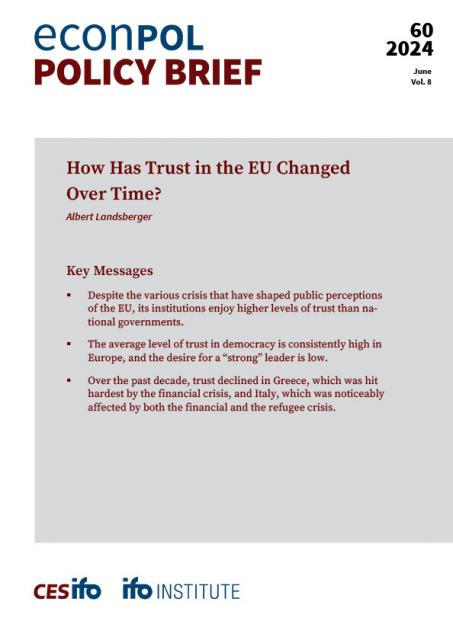How Has Trust in the EU Changed Over Time?
Key Messages
- Despite the various crisis that have shaped public perceptions of the EU, its institutions still enjoy higher levels of trust than national governments.
- The average level of trust in democracy remains consistently high and the desire for a "strong" leader is low.
- Over the past decade, trust declined in Greece, which was hit hardest by the financial crisis, and Italy, which was noticeably affected by both the financial and the refugee crisis.
Abstract
Over the past decade, crises have shaped public perceptions of the EU. This article examines the question of trust in a (democratic) institution by combining two large-scale surveys, the World Value Survey and the European Value Survey. Although the data do not include the most recent crisis, the pandemic and the war in Ukraine, they provide insights into how trust in the EU has evolved after the financial crisis of 2008 and the refugee crisis of 2015. It shows that the EU and its institutions still enjoy higher levels of trust than national governments. However, declining trust is a problem in Greece and Italy.
Series
Download
Download EconPol Policy Brief 60872.31 KB
Citation
Albert Landsberger: “How Has Trust in the EU Changed Over Time?,” EconPol Policy Brief 60, June 2024.
